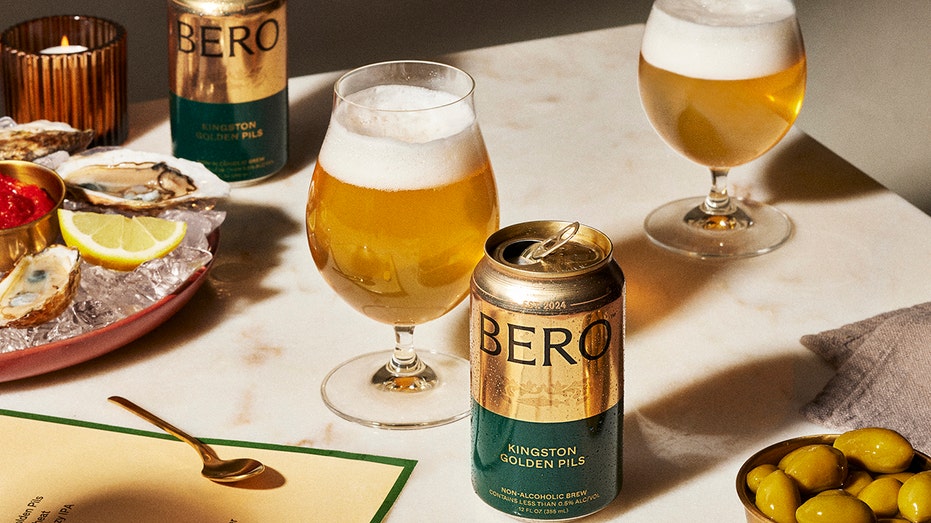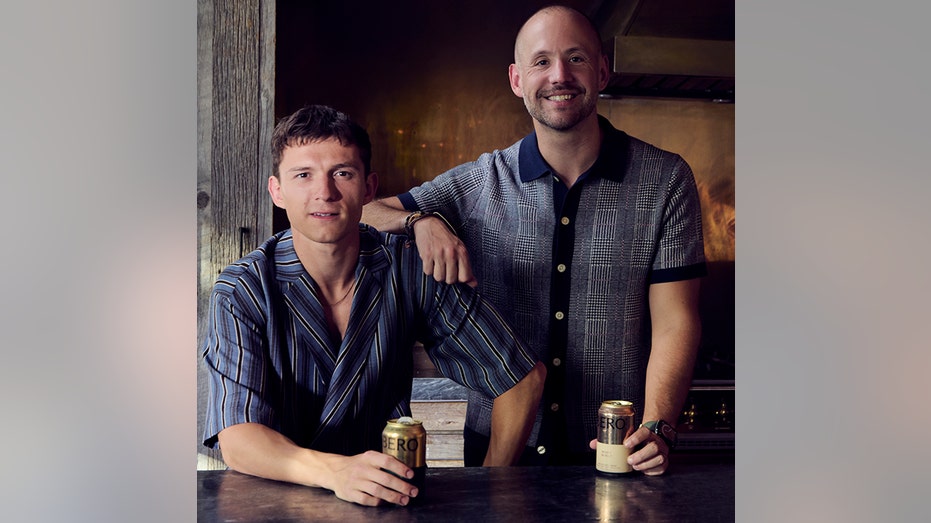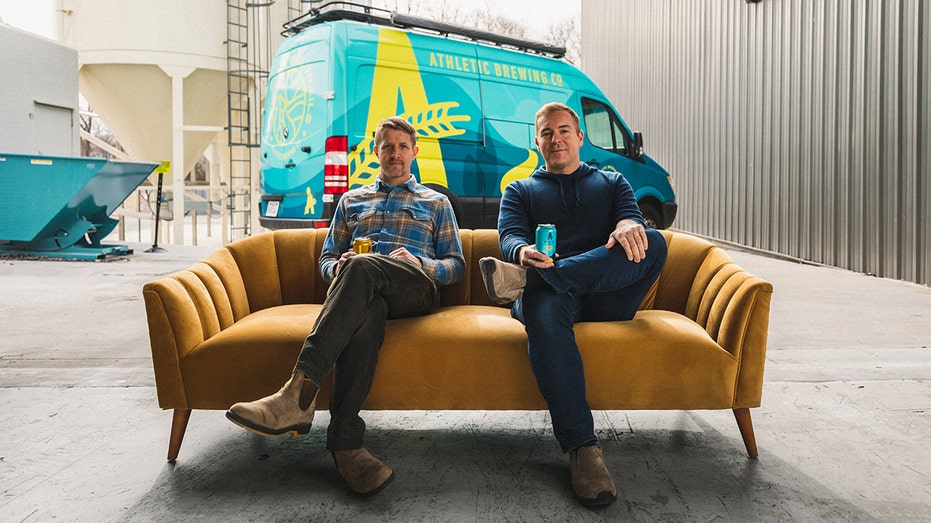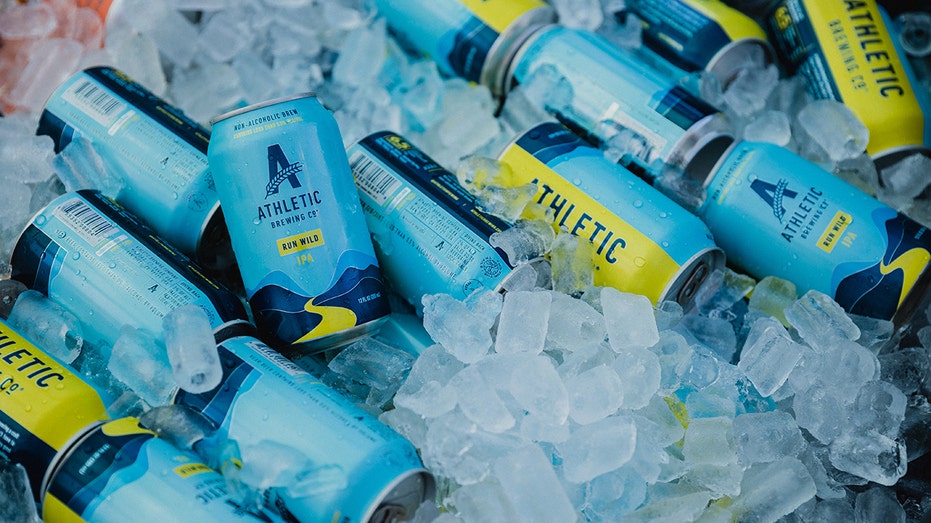Athletic Brewing Company CEO and co-founder Bill Shufelt shares how the non-alcoholic beer brand has stayed competitive to become a Top 10 craft brewer in the U.S.
A tidal wave of companies, including those owned by celebrities, are trying to tap into the non-alcoholic beer market, which is gaining traction among a large swath of consumers.
Bump Williams, CEO of Bump Williams Consulting, projects growth in the category for the next decade, with double-digit increases for at least the next five years.
“Drinking a non-alcoholic beer today is not like it was 25 years ago when the only people drinking them were recovering alcoholics. Today it’s an accepted lifestyle choice,” Williams said. “”The new 21+ consumer thinks more about health and wellness, control, moderation and ‘taste/flavor’ than previous [non-alcoholic] consumers.”
Non-alcoholic beer, once seen as a big winner during Dry January and as a substitute for alcoholics, is making big strides in the industry, and in some cases, even outperforming its alcoholic counterpart, experts say. This indicates that it is no longer a passing fad and the recent launch of Bero, a premium option created by CEO John Herman and actor Tom Holland, further underscores this consumer behavior shift.
AMERICANS ARE DRINKING LESS; NON-ALCOHOLIC BRANDS ARE SATURATING SHELVES: REPORT
“The growth of people being more discerning about what they’re putting in their body while not wanting to say no to moments of making memories is going to stay.” Herman told Fox Business, adding that “nonalcoholic beer is the most natural adjacency to the real thing. The flavor and experience is very much 1 to 1. Some of the other categories don’t have the same 1 to 1.”
The company started distributing its product in restaurants throughout New York and Los Angeles this week.

Bero, a new premium non-alcoholic drink, launched in the US this week. (Bero)
Evercore ISI analyst Robert Ottenstein credited the “creation of super premium [non-alcoholic beer] like Bero,” as one of the many drivers behind their category’s growth.
But he also highlighted several other key factors contributing to this trend, including the growing emphasis on moderation and advancements in brewing technology that have led to better-tasting non-alcoholic beers, and the “marketing muscle” of major companies like AB-InBev, Constellation Brands, and Molson Coors that have been instrumental in developing non-alcoholic versions of their beers that offer distinct taste profiles.
WHITE CLAW LAUNCHES NEW 0% ALCOHOL SELTZERS: ‘DEPTH OF FLAVOR AND COMPLEXITY’
“All of this creates critical mass among beer distributors and retailers that validates the category and makes product increasingly available on and off premise,” Ottenstein said. “At restaurants and grocery stores, consumers expect to see [non-alcoholic] beers and increasingly a variety of them.”

Bero co-founders Tom Holland and John Herman. (Bero)
Ottenstein projected that the “category should continue to grow much faster than regular beer and could at some point become 5% or more of the total market in the U.S.”
It’s a far cry from where the category first began.
Bill Shufelt, co-founder and CEO of Athletic Brewing Company, which currently holds over 19% marketshare in the nonalcoholic beer segment, said demand for beer is at “an all-time high.”

Athletic Brewing Company founder and CEO Bill Shufelt. (Athletic Brewing Company. )
In 2018, when the company launched its brews commercially, non-alcoholic beer “was the sleepiest category,” and accounted for a mere 0.3% of total beer sales, according to Shufelt.
“When we launched in 2018, several industry experts scoffed at the idea of building a brewery dedicated exclusively to non-alcoholic beer,” he said. “They questioned whether there was enough consumer demand for non-alcoholic beer to support our ambitions and urged us to consider making full-strength beer as well. Thankfully, we didn’t listen.”
GET FOX BUSINESS ON THE GO BY CLICKING HERE

Can of Athletic Brewing Company’s non-alcoholic beers. (Athletic Brewing Company)
Today, the category is growing faster than any other segment in beer, he said, adding that “a record number of Americans, 45%, now believing that consuming one to two drinks per day is bad for their health.”
He cited data from global marketing research firm NIQ showing how off-premise sales of non-alcoholic beer rose from $135.2 million in 2018 to $487.3 million in 2023.
So far this year, sales have already surpassed $541 million.